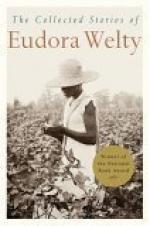|
This section contains 373 words (approx. 2 pages at 300 words per page) |

|
Welty, I think, offers [in The Eye of the Story] a truer, more adroit vision of fiction than either that of a language-functionary like Gass, whose protocols are ensured against outside tampering, or that of a lifelikeness-affirmer like Gardner, who, frustrated by the intransigent surprise of the world, disgustedly spits in the soup because it's already too thin.
"Great fiction shows us not how to conduct our behavior but how to feel." As simple—and enormous—as that. Also a statement not to be taken too lightly: it only looks mild. Right hopes and goals, right speech, fine—but where and what is right sensation? Welty knows—and her fiction knows more deeply—that by setting them out on a loose leash, the lenient novelist riskily allows his characters the harsh freedom to land themselves in their own particular holes, to suffer the same discrepancies, inconveniences, even unbearable...
|
This section contains 373 words (approx. 2 pages at 300 words per page) |

|


